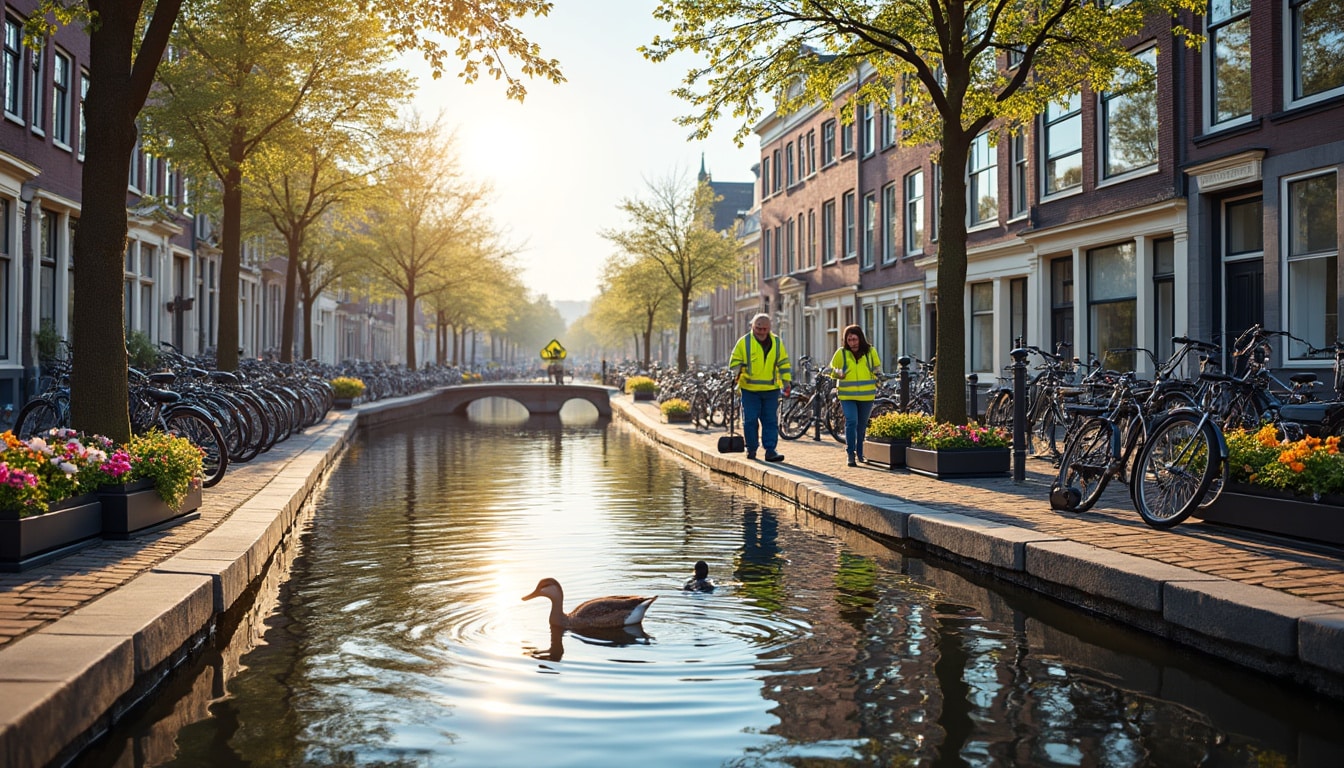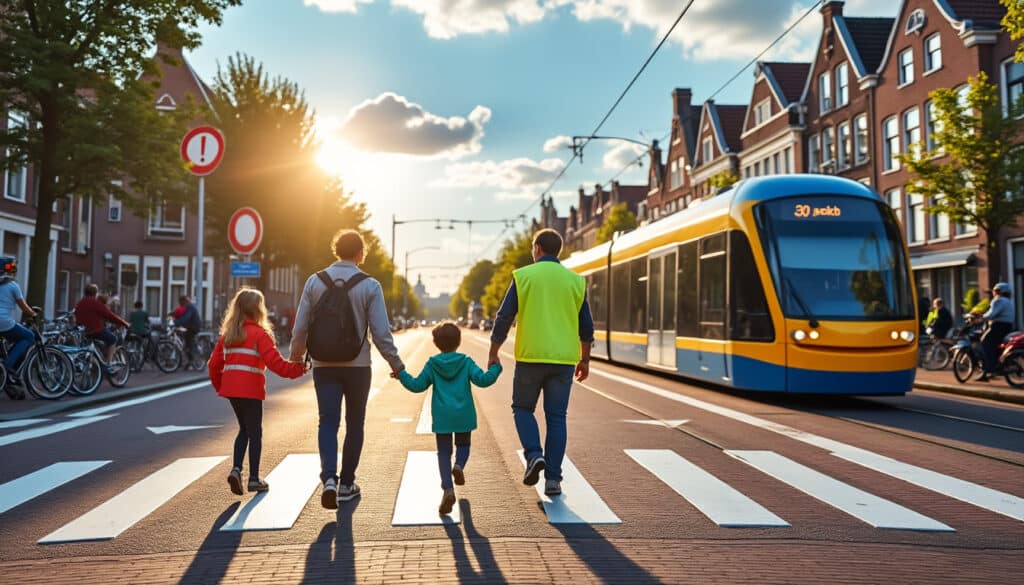Amsterdam, a city renowned for its picturesque canals, vibrant culture, and historical landmarks, holds a curious reputation when it comes to cleanliness. This city, often buzzing with tourists and locals alike, manages to maintain a relative cleanliness despite its bustling nightlife and urban challenges. This raises an intriguing question: is Amsterdam truly a beacon of cleanliness, or is it a city battling the same issues as many other urban centers around the globe? The answer lies in a fascinating exploration of both its historical roots and modern-day practices.
The Historical Roots of Amsterdam’s Cleanliness
Dating back to the Dutch Golden Age, Amsterdam has long been associated with a unique approach to cleanliness. During this period, the city developed an interesting juxtaposition of being both renowned for its cleanliness on land yet notorious for its “bad breath” emanating from the canal system. Anecdotes from this time recount foreigners being impressed by the meticulous attention to domestic and public architecture cleaning, thus highlighting an early cultural commitment to hygiene.
Historical records reveal that the obsession with cleanliness may have stemmed from a combination of cultural and geographic influences. For instance, strict rules were established, such as the Amsterdam magistrate’s requirement in 1498 for maidservants to maintain immaculate doorsteps. Beyond mere domestic attention, certain practices like cutting cows’ tails to prevent streets from being fouled demonstrate how deeply ingrained these hygiene habits were.
The dairy industry, significant in the Netherlands’ economy, might also have played a role in fostering these high cleanliness standards. The production of dairy products required stringent hygiene practices, which could have permeated broader societal habits. Thus, during an era when many European cities struggled with sanitation, Amsterdam made conscious efforts to distinguish itself.
In this context, Amsterdam’s cleanliness practices were not merely confined to the elite but spanned across social classes, making it a widespread cultural norm. Even though challenges such as unpleasant urban scents persisted, the collective efforts in maintaining cleanliness provided the city with an identity distinct from its contemporaries. This legacy of cleanliness is still evident in Amsterdam’s urban practices today, echoing a historical commitment to public and personal hygiene.
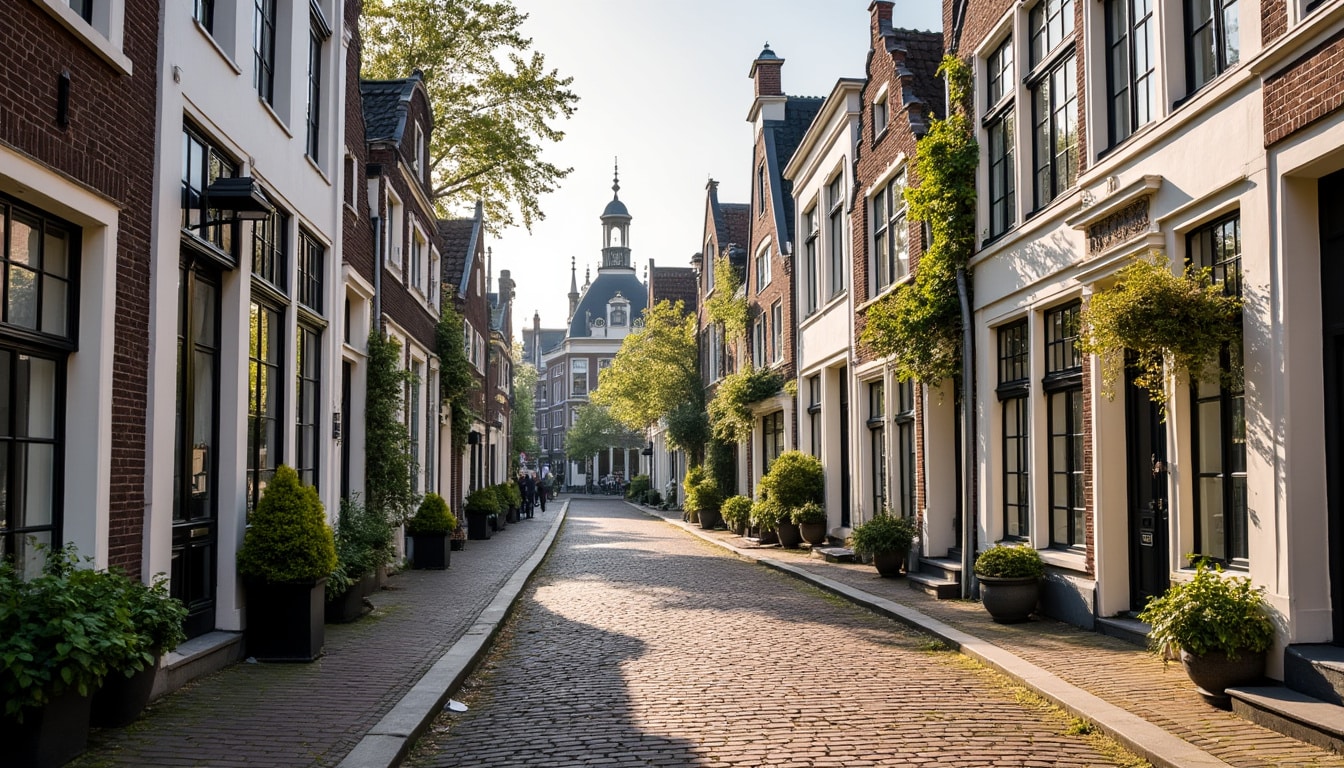
Cultural Influences on Cleanliness
Amsterdam’s cultural landscape heavily influenced its historical cleanliness practices. The Netherlands, known for its Protestant work ethic and moralism, likely prompted practices of orderliness and cleanliness—a reflection of deeper societal values. This cultural connection is essential in understanding why cleanliness was more than just a practical concern; it was intertwined with religious and social ethics.
Moreover, the geographic location of the city—with its damp climate—necessitated a heightened focus on indoor cleanliness and hygiene. The drive to maintain a clean environment was as much about comfort as it was about community pride and social responsibility.
Modern-Day Cleanliness: Initiatives and Challenges
In 2025, Amsterdam’s commitment to cleanliness remains robust, yet it faces the typical challenges of a modern metropolis. The City of Amsterdam has put forth numerous initiatives to manage waste and ensure sanitation in public spaces, reinforcing the city’s identity as a “Hygiene Hub.” These efforts are strategically designed to address and mitigate issues of urban waste, particularly in densely populated and tourist-heavy zones like the Burgwallen area.
For instance, new policies emphasize sustainable waste processing and regular street cleaning schedules. The city also encourages residents and businesses to actively participate in maintaining cleanliness, fostering a communal responsibility towards the environment. Critical to these efforts is the integration of modern technology, like sensors in public bins to alert sanitation workers when they are full, thereby ensuring timely waste removal.
Yet, despite these modern advancements, challenges linger. Surveys indicate that residents remain concerned about overcrowding and the resultant pressure on sanitary conditions. While rural areas around Amsterdam are generally noted for their cleanliness, the inner city experiences typical urban issues.
Furthermore, the city’s unique charm, which draws vast numbers of tourists, also complicates cleanliness efforts. As a result, Amsterdam continues to refine its approaches, balancing its historical commitment to hygiene with the demands of modern urban living.
| Area | Cleanliness Rating | Main Challenges |
|---|---|---|
| Burgwallen | Moderate | Overcrowding |
| Rural Areas | High | Maintaining standards |
| City Center | Low | Tourist impact |
Community and Government Collaboration
A significant aspect of Amsterdam’s cleanliness strategy stems from effective collaboration between the government and the community. The City of Amsterdam motivates citizens and local businesses to engage in neighborhood cleanups and supports initiatives such as the “Green Clean” program, which provides resources for sustainable waste disposal.
Encouraging community participation not only distributes the responsibility for maintaining public spaces but also strengthens social bonds and local pride. Combining policy measures with grassroots initiatives offers a comprehensive approach towards achieving “Fresh & Clean” living environments for both residents and tourists.
Environmental Initiatives and Sustainability Efforts
Amsterdam has distinguished itself as a leader in implementing “Eco-Friendly Clean” practices, showing that sustainability and urban cleanliness go hand in hand. The municipality has introduced effective regulations, not only addressing refuse collection but also promoting energy-efficient technologies and water purification systems that preserve the city’s hallmark canals.
Projects such as the “Clean Living Co.” initiative aim to reduce the city’s carbon footprint by encouraging biking over car usage, thereby lowering pollution levels. The Clean Living Co. further incentivizes residents to adopt eco-friendly living practices, supported by tax breaks and subsidies for green infrastructure investments.
Additionally, the city’s commitment to alternative energy sources and electric vehicle infrastructure underscores Amsterdam’s proactive strategy in achieving a sustainable future. By 2025, Amsterdam has solidified its reputation as a model for urban sustainability, setting a precedent for cities worldwide.
Comprehensive recycling programs are in place, with waste-to-energy schemes actively being promoted. These efforts not only enhance cleanliness but also contribute to Amsterdam’s goals for a “Spotless Amsterdam” through lowering waste and enhancing resource management.
Moreover, Amsterdam’s networks of public transportation and cycling pathways underscore a broader commitment to urban hygiene. Reduced vehicle emissions contribute to air quality improvements, aligning modern living standards with the city’s longstanding cleanliness ethos.
Technological Integration and Future Prospects
In integrating technology with hygiene initiatives, Amsterdam pushes towards an even cleaner future. Automated waste collection, smart recycling bins, and IoT devices position the city at the forefront of urban cleaning tech innovations.
The implementation of networked systems that can predict when areas will need attention is a forward-thinking solution ensuring Amsterdam maintains its status as an Eco-Friendly Clean city. These smart technologies, coupled with community efforts, underscore a persistent push towards optimal cleanliness and hygiene standards for future generations.
Tourism and Cleanliness: Managing Public Perception
As a top travel destination, Amsterdam’s cleanliness plays a crucial role in shaping visitors’ experiences. Tourists often associate a clean environment with safety, comfort, and a welcoming atmosphere, reinforcing their intention to return.
Public perceptions of hygiene have always impacted tourism, and Amsterdam capitalizes on this through its extensive cleanliness campaigns that emphasize transparency and municipal action. This approach promotes Amsterdam as not only a cultural hotspot but also as a conscientiously clean and welcoming city.
The Amsterdam Sanitization efforts include regular public space audits to ensure alignment with health guidelines—reinforcing confidence for international visitors. Touted initiatives like “Pure Amsterdam” emphasize the city’s dedication to safe and healthy experiences.
While ensuring tourist hot spots maintain high cleanliness standards, the city also confronts the challenge of educating tourists on Dutch norms regarding sanitation and recycling. Informational brochures, public signage, and guided tours serve as educational tools ensuring tourists partake in maintaining the cleanliness they experience at home, ensuring a seamless, harmonious experience.
Effective Communication with Tourists
Clear communication plays a pivotal role in managing tourist expectations about Amsterdam’s cleanliness standards. By providing multilingual resources and engaging online platforms, the city helps bridge cultural and language barriers, aiding in disseminating important hygiene information.
These efforts assure tourists of Amsterdam’s stringent cleanliness standards, all while branding the city as a premier location in cleanliness and sustainability. A seamless integration of urban hygiene into the overall tourist experience continues to position Amsterdam as a model for city clean standards.
Urban Hygiene Advocacy and Future Goals
Amsterdam’s advocacy for urban hygiene underscores a broader commitment to city liveability. Public and private sectors work hand-in-hand to spearhead initiatives focused on transforming Amsterdam into a beacon of “Spotless Amsterdam.” This collaboration reflects a shared determination to achieve heightened urban hygiene standards.
By focusing on proactive cleanliness policies, the city aligns its future goals with a sustainable and hygienic urban environment that residents can be proud of. Continuous development and innovation remain key drivers in meeting these aims, supported by consistent investment in green technologies and community programs.
Future goals prioritize creating a healthier urban environment that minimizes waste impact while maximizing public awareness and participation. Amsterdam’s ongoing commitment to advocate for a clean city environment ensures it remains at the forefront of urban hygiene practices globally.
Significant outreach programs aim to educate younger generations on sustainable living practices, ensuring that Amsterdam’s legacy of cleanliness endures. Long-term objectives stress creating a self-sufficient urban system that adapts to evolving environmental challenges and population growth without compromising its core cleanliness values.
- Implement advanced waste management systems 📦
- Expand green spaces and eco-friendly infrastructure 🌳
- Foster community involvement and education 📚
- Strengthen international collaboration on urban hygiene 🤝
The Netherlands’ unique trajectory in combining historical cleanliness values with modern innovations makes it a compelling example for cities worldwide. Amsterdam’s persistent focus on maintaining Urban Hygiene reflects a deep-rooted cultural ethos committed to building a sustainable and welcoming city for residents and visitors alike.
Future Innovations and Initiatives
Amsterdam’s ongoing exploration of cutting-edge technologies and innovative policies stands as testament to its dedication. Future projects, such as biodegradable packaging materials and algae architecture, feature prominently in its urban hygiene roadmaps.
By investing in urban development that emphasizes cleanliness and sustainability, Amsterdam paves the way for future cities aspiring to operate harmoniously with their environments. The city’s comprehensive forward-planning positions it as a global leader in hygiene advocacy.
FAQ: Common Questions About Amsterdam’s Cleanliness
Here are some frequently asked questions about cleanliness and hygiene in Amsterdam:
- Is Amsterdam a clean city? Yes, Amsterdam is generally considered a clean city due to its effective policies and community participation in maintaining public hygiene.
- What are the challenges Amsterdam faces in keeping clean? Overcrowding, tourist impact, and urban pressures are key challenges, especially in densely populated areas.
- How does Amsterdam manage waste? Amsterdam employs sustainable waste management practices, including recycling initiatives, smart bins, and community clean-up programs.
- What role does the community play in Amsterdam’s cleanliness? The community plays a vital role, participating in neighborhood clean-ups and adhering to city ordinances promoting sanitation.
Amsterdam’s journey in upholding its standards of cleanliness and hygiene highlights a city committed to balancing historical influence with contemporary environmental demands, offering a blueprint for urban cleanliness worldwide.
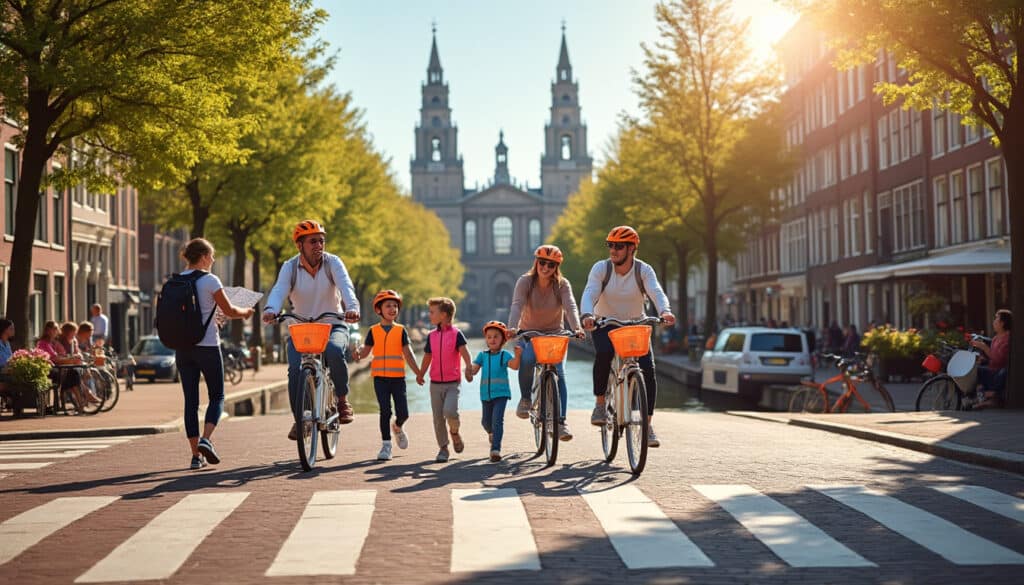
Welcome to the bustling city of Amsterdam—where historic canals weave through iconic architecture, creating a picturesque atmosphere that beckons travelers worldwide. Known for its rich cultural heritage and welcoming character, Amsterdam is a favorite among avid explorers. However, ensuring a…
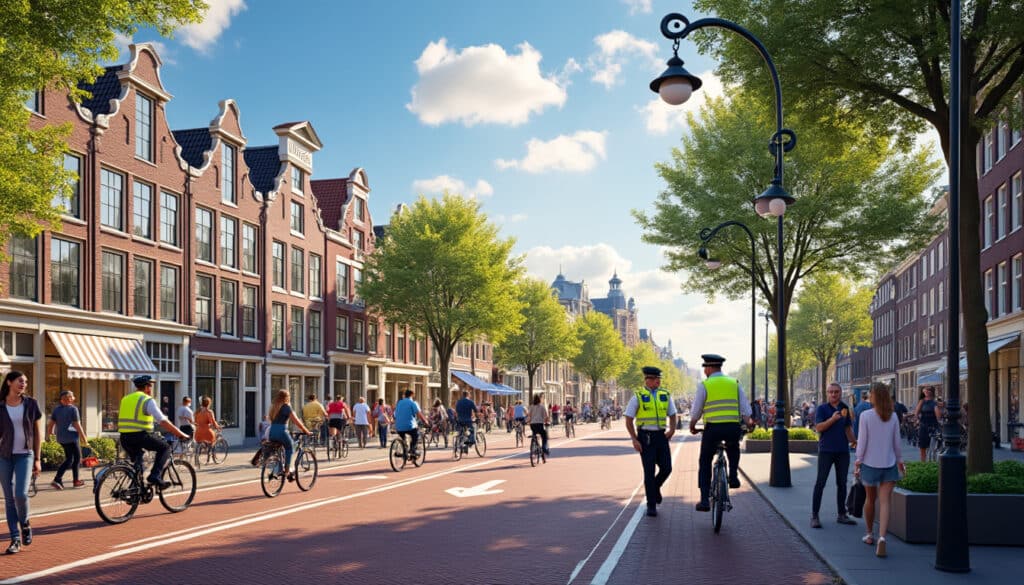
As Amsterdam attracts millions of tourists annually, questions regarding its general safety inevitably arise. Known as a vibrant and culturally rich city, it’s vital to understand the real safety landscape for anyone planning to visit or live there. With its…
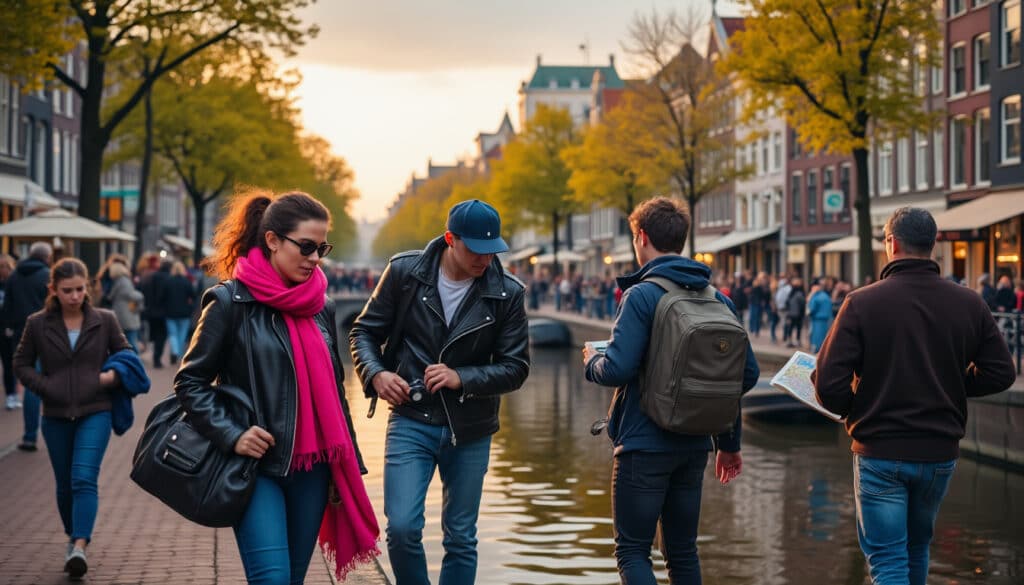
Pickpocketing and theft in Amsterdam
Amsterdam, known for its picturesque canals and rich history, has unfortunately experienced a rise in pickpocketing and petty theft. As one of Europe’s most popular tourist destinations, the city’s bustling urban landscape and thriving cultural scene make it a prime…
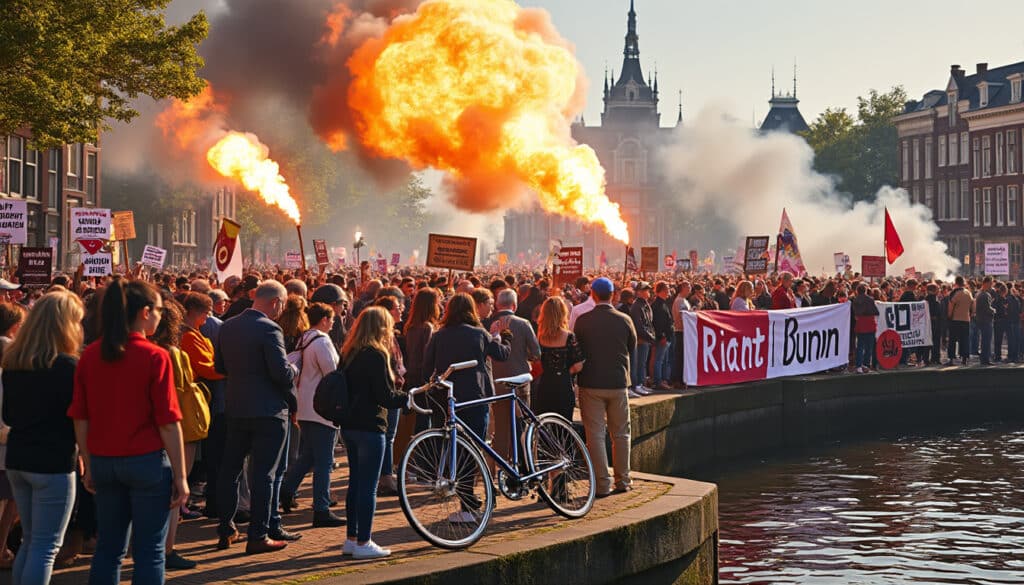
Protests and social unrest in Amsterdam
🏙️ The vibrant streets of Amsterdam, often bubbling with tourists and cyclists, have recently become the stage for a series of protests and social unrest. The issues at hand are diverse, ranging from political demonstrations to movements for equality, shining…

Safety in Amsterdam for travelers from different countries
🌍 Amsterdam, a bustling and eclectic metropolis, is frequently visited by millions of tourists each year, drawn to its picturesque canals, vibrant cultural scene, and well-known liberal attitudes. But for travelers concerned about safety during their journey, particularly in 2025,…

